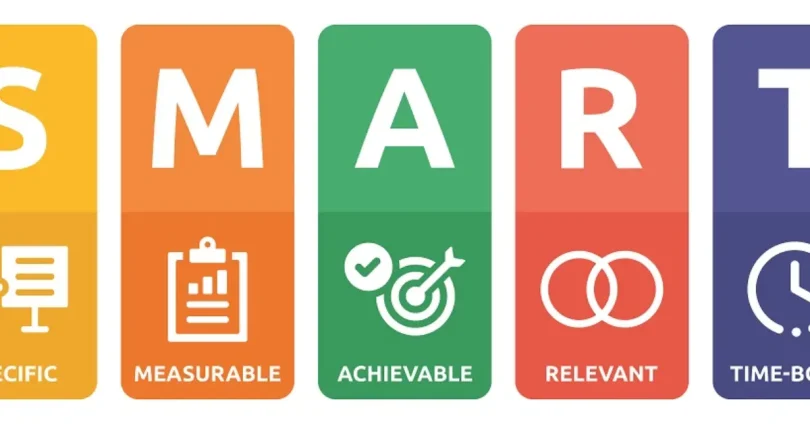In today’s fast-paced digital world, businesses face constant challenges to stay competitive, efficient, and innovative. Technology plays a major role in solving these challenges, and one of the most important developments has been the rise of smart business tools. These tools are designed to automate processes, streamline communication, boost productivity, and help companies make data-driven decisions. But what are smart business tools, and why are they so crucial in modern workplaces? This article explores their meaning, types, benefits, and practical applications in detail.
What Are Smart Business Tools

Smart business tools are digital solutions, software platforms, and applications that help businesses manage their operations more efficiently. They rely on technologies like artificial intelligence (AI), cloud computing, machine learning, and automation to simplify tasks that would otherwise require a lot of time and effort. From project management and customer relationship management (CRM) to marketing automation and financial tracking, these tools cover nearly every aspect of running a modern business.
Why Smart Business Tools Are Important
- They save time by automating repetitive tasks
- They reduce costs by eliminating manual errors
- They improve collaboration between team members
- They provide data insights for better decision-making
- They help businesses scale faster and compete globally
Types of Smart Business Tools
Project Management Tools
Managing multiple projects and teams can be overwhelming without digital support. Smart business tools for project management provide dashboards, task tracking, and collaboration features.
- Examples: Trello, Asana, Monday.com, Jira
- Benefits: Organize tasks, set deadlines, track progress, and assign responsibilities seamlessly.
Communication and Collaboration Tools
Clear communication is vital for any successful business. These tools improve team interaction, especially in remote and hybrid setups.
- Examples: Slack, Microsoft Teams, Zoom, Google Workspace
- Benefits: Enable instant messaging, video meetings, and file sharing in one place.
Customer Relationship Management (CRM) Tools
CRM systems are among the most popular smart business tools because they help manage customer data and interactions.
- Examples: Salesforce, HubSpot, Zoho CRM
- Benefits: Track customer journeys, improve sales strategies, and boost customer satisfaction.
Marketing Automation Tools
Modern businesses rely heavily on digital marketing. Smart tools automate campaigns, track analytics, and personalize content.
- Examples: Mailchimp, HubSpot Marketing Hub, Marketo
- Benefits: Save time, generate leads, and analyze campaign performance.
Financial Management Tools
Managing finances manually can be risky and time-consuming. Smart finance tools automate invoices, track expenses, and forecast revenue.
- Examples: QuickBooks, FreshBooks, Xero
- Benefits: Simplify accounting, manage payroll, and reduce errors.
Data Analytics Tools
Businesses generate large amounts of data daily. Analytics tools help make sense of this data and turn it into actionable insights.
- Examples: Google Analytics, Tableau, Power BI
- Benefits: Improve decision-making, identify trends, and measure business growth.
Human Resource (HR) Tools
HR departments use smart tools to manage employee performance, recruitment, and payroll.
- Examples: BambooHR, Workday, Gusto
- Benefits: Streamline hiring, track attendance, and improve employee engagement.
Cloud Storage and File Management Tools
Businesses require secure platforms to store, manage, and share documents.
- Examples: Google Drive, Dropbox, OneDrive
- Benefits: Access files anytime, collaborate in real-time, and ensure data safety.
E-Commerce and Sales Tools
Online businesses rely on tools that handle sales, inventory, and customer service.
- Examples: Shopify, WooCommerce, Magento
- Benefits: Build online stores, track inventory, and manage payments easily.
Cybersecurity Tools
Protecting sensitive information is critical. Smart security tools safeguard data from threats.
- Examples: Norton, McAfee, LastPass, Cloudflare
- Benefits: Secure networks, manage passwords, and prevent cyberattacks.
You may also like to read these posts:
Learn How to Use Productivity Tools the Right Way
Types of Smart Marketing Tools You Should Know
Best Smart Tools for Startups to Grow Faster in 2025
Why Digital Tools Boost Efficiency: Smarter Work in Less Time
Benefits of Using Smart Business Tools

Increased Efficiency
Automation speeds up repetitive tasks, freeing employees to focus on strategic goals.
Better Collaboration
what are smart business tools-Remote and in-office teams can work together seamlessly with digital platforms.
Cost Savings
what are smart business tools-Smart tools reduce the need for large manual teams, lowering operational costs.
Improved Decision-Making
what are smart business tools-Data-driven insights help leaders plan strategies with more confidence.
Enhanced Customer Experience
what are smart business tools-CRM and marketing tools ensure businesses can personalize services and improve satisfaction.
Business Growth and Scalability
what are smart business tools-With smart tools, businesses can expand globally, reach new markets, and scale without major costs.
Challenges of Using Smart Business Tools
Learning Curve
Employees may need training to adapt to new systems.
High Initial Cost
Some advanced tools require investment in licenses and subscriptions.
Data Privacy Concerns
Smart tools collect large amounts of data, raising concerns about privacy and compliance.
Overdependence on Technology
Excessive reliance can cause issues if systems fail or experience downtime.
How to Choose the Right Smart Business Tools
Define Your Business Needs
Understand whether you need tools for project management, marketing, or finance.
Consider Integration
Choose tools that integrate smoothly with your existing systems.
Focus on Scalability
Pick platforms that can grow with your business.
Look for User-Friendly Options
Easy-to-use tools reduce training time and increase adoption.
Check Security Features
Ensure that the tool complies with industry standards for data protection.
Future of Smart Business Tools
The future of smart business tools will be shaped by artificial intelligence, machine learning, and automation. We will see:
- Smarter chatbots for customer service
- Predictive analytics for better forecasting
- More personalized marketing tools
- Greater reliance on cloud-based collaboration
- Enhanced security powered by AI
FAQs About Smart Business Tools
What are smart business tools in simple terms?
They are digital platforms that automate, manage, and optimize business tasks like communication, accounting, or customer service.
Do small businesses need smart tools?
Yes, small businesses benefit from smart tools as they save time, reduce costs, and allow them to compete with larger organizations.
What is the most popular smart business tool?
It depends on the industry, but project management and CRM tools are among the most widely used worldwide.
How do smart business tools improve productivity?
They eliminate repetitive tasks, streamline workflows, and provide real-time data that helps employees focus on higher-value activities.
Are smart business tools expensive?
Some are free or low-cost, while advanced solutions require monthly subscriptions. However, the long-term savings usually outweigh the initial costs.
Conclusion
The question “what are smart business tools” leads us to understand how essential they are in today’s digital-first world. From managing projects and finances to improving customer experiences and data security, these tools redefine how businesses operate. While there are challenges like training and costs, the benefits—efficiency, productivity, scalability, and growth—far outweigh the drawbacks. As technology evolves, smart business tools will continue to be the backbone of successful organizations worldwide.





